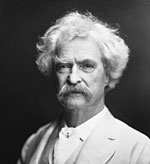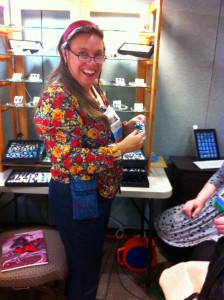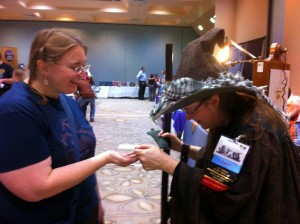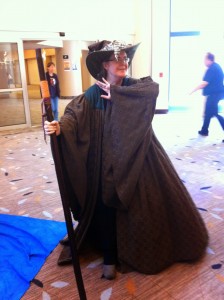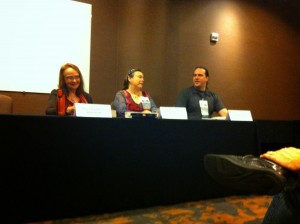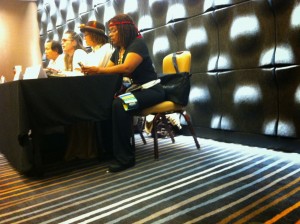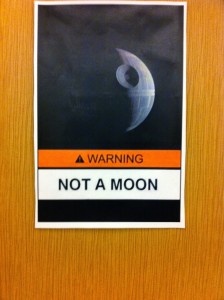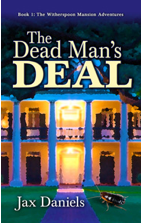By Jennifer L. Carson
I’m the only one in the group on the sane side of the pond—Go UK! I’ve had a penchant for telling stories as far back as I can remember. I always wanted to lead the “Let’s Pretend” games when I was a kid, which my mother documented on some horrifying cassette tapes of me around age three. I apparently gathered all my teddies around and told them stories and jokes and sang songs to them. If spontaneous combustion ever happens in my home, please let it be in those tapes!
I’m not the only one whose life Leasspell has touched. Our newest member, Carolyn, is a longtime friend, but she stopped writing for a while. Since joining the group a couple of months ago, she’s gotten together with me twice for writers retreat weekends. I hope Leasspell does for her what it is doing for me: keeping me at the keyboard. Denise and Jax finished in first and second place in a publishing contest for Assent Publishing’s fantasy imprint, Phantasm Books. I don’t think it’s a coincidence that out of eighty-four submissions, first and second place went to members of our writers group. It is an outstanding group. And I know Jason is using the deadlines to spur his writing. I think everyone of us is learning more about the whirlwind changes in the formerly staid old publishing industry because of our pooling together and sharing our experiences, our research and knowledge, and our contacts.
This is all to say: Leasspell has changed my life.
So what does this have to do with Laura? Everything. Without her, Leasspell wouldn’t exist. I had been in writers groups at various times with Carolyn, Denise, and Jax. Jax had been prodding me to get our last group back together, but this time online since she had moved. I dragged my feet. Technology issues, time, lack of motivation on my own writing—all things in my head that kept me waving her off with a “yeah, yeah, good idea…sometime.”
Then I met Laura online. She was young when I met her, seventeen, I think. We met through a social media game. Must have been preordained ’cause I hate playing social media games. But my husband had an interview with this company and needed accounts to play with. So I started one and got a bit hooked for three months. But in that time, Laura helped me out with the game, which lead to us talking and some very long emails.
I found out she is a smart funny young lady who has a talent for writing. She was raw, but had splashes of crisp clear writing that really surprised me, and she had the passion to go with it. I saw some of myself in her. Then I found out Laura is disabled. Very, very disabled and sick much of the time, too. The world comes to her through books and her computer. She lives much of her life in the fantasy worlds in her head and she wanted to put them into books. I wanted to help her do that, and I wanted to help her do it well, as I knew she could with a little guidance and practice.
I called Jax, and I said let’s do this. Thus was Leasspell born—all thanks to a bright young woman I met through a video game.
Today, Laura’s illness and disability have progressed to the point that she cannot spend a lot of time at the keyboard, so she is no longer submitting her own manuscripts to our group. She reads more now than ever before—125 books last year! Blew my mind! Her voracious reading is likely the reason she was one of the best commenters on fantasy that I’ve met. I have lots of writer friends giving me writerly advice, but Laura has a reader’s eye and an amazing understanding of genre conventions. That is a rare and valuable thing to a writer. Now Laura has made that keen insight available to all on her reviewers Web site. This is what she has to say about choosing that path:
For a long time, I was just a lurker hidden in the shadows of online reviewing. I would read these great, often indie published, books and have opinions. I often disagreed with other reviewers but never stated my mind. Then I thought, “You know what? I’ve read voraciously since I was seven, I think I have the right to validate my points.”
And so she did. She started reviewing on Amazon and then last year started her own blog—a very busy one at that! When asked what she likes to read, she says:
Anything and everything really, including the contents of the bathroom cupboard on those days you, well… just get stuck there! My favourite genres are science fiction and fantasy. I enjoy a good biography of somebody who has overcome great obstacles. I also read historical fiction and horror. That’s pretty much my order of preference.
So if you have a small-press or indie-published book (or one about to be published) and are looking for a good reviewer, today is your lucky day. Hop on over to Laura’s Web site, Laura of Lurking, and check out the more detailed submission guidelines. If she’s not accepting books for review, you can always email her to find out what her timeframe is till she opens up again. Like I said, she reads fast! Or if you just want to know what’s good out there in the indie and small-press community, she’s put up quite a list of candidates this past year and so her reviews can help you find a good book that suits you.
Laura has been an inspiration to me. She has every reason to be down most of the time. Instead she always greets me with wit and humor and the same voraciousness for life that she has for her reading. I sometimes wonder how she does it, and one day I finally asked. I will leave you with her answer to that, for it is good advice for us all:
What the future holds—who knows? Who really wants to? If you study the future, you’ll miss those little gems passing by right now.

